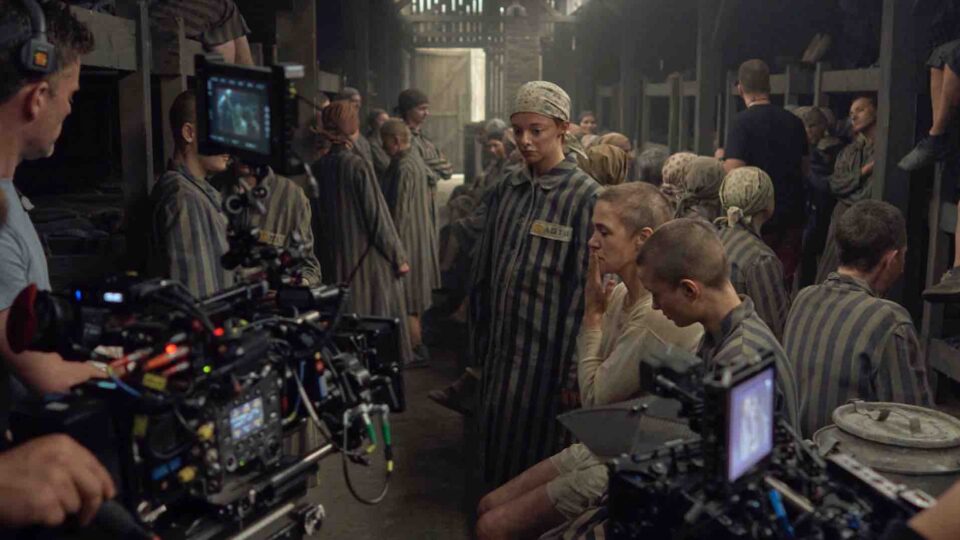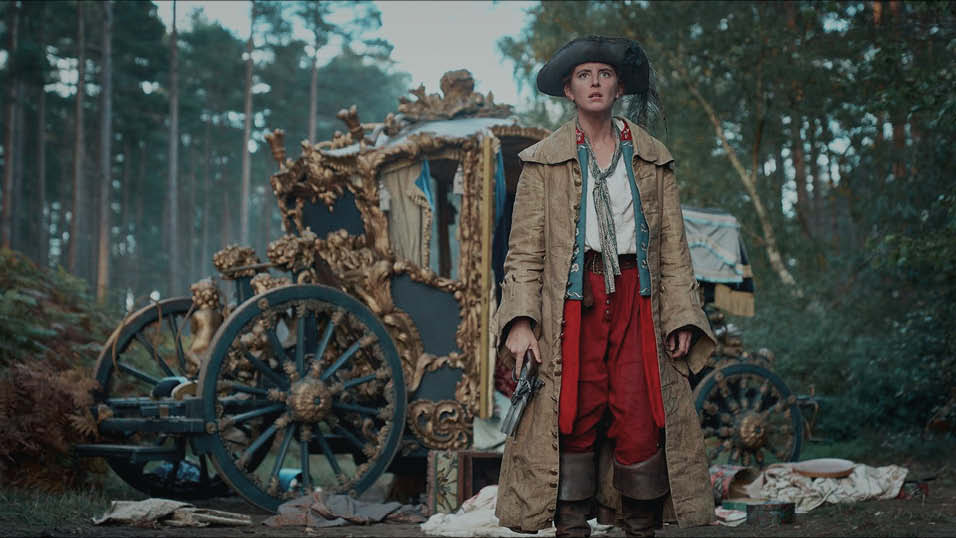The plan to close BBC3 as a TV channel was described as ‘the biggest strategic decision the BBC has made in over a decade,’ when it was announced last year by director of television Danny Cohen.
But an increasingly vocal campaign is arguing that the corporation’s decision is misguided.
Led by Hat Trick boss Jimmy Mulville and Avalon founder Jon Thoday, it’s a campaign that appears to be gaining traction. They aim to persuade the BBC to reverse its decision, just as it did with BBC6 Music.
The pair recently met with some 100 indies at a Pact organised event to explain their alternative proposals for BBC3. They are also meeting with the BBC Trust to lobby against BBC3’s closure.
Talking to Televisual, their determination to reverse the decision is readily apparent. Despite being rivals who have built up indies that between them produce shows such as Have I Got News for You, Episodes, Russell Howard’s Good News and Catastrophe, the pair make a compelling and forceful lobbying team.
They spell out their position in a rapid-fire but measured delivery. As soon as one makes a point, the other quickly picks up the argument and takes it further. “We are finding that more and more people are coming to us, and everyone agrees that, first, BBC3 shouldn’t go, and secondly, there are plenty of ways to keep it going,” says Thoday.
The pair stress that BBC3’s closure as a broadcast channel has not yet been approved by the BBC Trust. However, they say that BBC management has already begun dismantling the channel, pointing out that one of its staple shows, animation Family Guy, has just been picked up by ITV2.
Mulville says: “The BBC made a show of wanting to retain Family Guy, but it was cosmetic. The fact is that they are dismantling the channel and setting up an online service without the permission of the Trust – and the Trust are basically doing absolutely nothing.” He describes it as a “kind of quiet British scandal.”
BBC management, he adds, are not willing to engage with them to explore other options for the TV channel that would prevent its closure.
The pair has put forward three proposals for BBC3. Firstly, that the BBC should change its mind and keep BBC3 going. Secondly, that Hat Trick and Avalon with a consortium of other indies should buy BBC3 and run it under a different name. And thirdly, that they should form a ‘statutory corporation’ similar to C4 to run it as a not for profit broadcaster.
The first of these proposals has the strongest support from the indie community. This became clear at the recent meeting with fellow indies, where a straw poll conducted by Pact chief executive John McVay after the producers’ presentation revealed strong support for preserving BBC3 as a linear channel. But, according to a report in Broadcast, there was only a smattering of raised hands in support for proposals to buy BBC3 or set up a Channel 4-style public service broadcaster.
Steve Coogan and Henry Normal’s indie Baby Cow – producer of BBC3 hits Gavin and Stacey and The Mighty Boosh – has already backed their campaign, which is set to be joined by a high profile and as yet unnamed executive from the online world.
Mulville argues that an online channel needs to have a relationship with a TV channel in order for the online channel to work properly. “You need the synergy of both platforms…the future is multiplatform, not single platform.”
Both argue that BBC3 is an important service for 16-34 year olds, and that its closure would make the BBC ‘more middle aged, more middle class and whiter’. They point out that the channel has been a crucial gateway for new talent, ideas, executives and production companies in the TV industry.They also note that the BBC is the only broadcaster closing channels. “Everybody else is actually growing channels,” says Mulville. Replacing BBC3 with a +1 service for BBC1, meanwhile, is merely a “ratings grab where no money goes into programmes.”
They explain that the BBC has invested around £1bn in the channel. To simply close it and move it online makes no business sense: rather the BBC could realise some of that investment by selling the channel slot while carrying on with their online plans for BBC3. Mulville and Thoday have previously spoken of paying £100m for the slot occupied by the channel.
The pair question whether the closure of BBC3 actually saves the corporation any money. The BBC has said the move will save £50m a year, but £30m will be reinvested in drama for BBC1. Further money would be spent on the BBC1 catch up service and running BBC3 online. “We are not convinced there will be any saving,” says Thoday.
They also rebut criticism that their call to save BBC3 is motivated by self-interest as key suppliers of new talent and shows to the channel. They say they are not looking to become channel owners, and are busy running their own companies – and would prefer not to spend valuable time campaigning. “We are doing this because we see this as a disaster for the industry,” says Thoday.
Mulville admits their plan is driven by “enlightened self interest.” Their campaign against the closure of BBC3 was hatched nine months ago over a breakfast meeting. “We couldn’t believe they were actually closing a service they had spent a billion pounds of licence fee on, and had got working very well,” says Mulville.
What started off as a “cheeky bid” for the channel has now become very serious, they say. “We realised the BBC hadn’t thought of any alternative beyond just shutting it down,” he adds.
“If anybody can find an argument why it isn’t in the interest of the industry that money is invested in new programmes for young viewers, then I would like to see it,” says Thoday. Mulville chips in: “They already have a fantastic catch up service – BBC iPlayer.”
Cohen hit back at their plan to buy the channel in an open letter published in February, saying they could not use the BBC3 brand name for a commercial service, could not have the EPG slot which is reserved for public service channels and would not have access to a very large proportion of programme rights.
The pair responded by saying they did not want the BBC3 brand name, and that rebranding channels – such as Dave – is a well-established practice. They also acknowledged that the BBC3 EPG slot is not within the gift of the BBC, but argue their proposals – which include an increase in original production spend of £30m – make more sense than a catch up channel. On the issue of rights, they say that programme makers who have produced shows for BBC3 would welcome the opportunity to continue providing programming for a linear TV channel ‘rather than see their work struggle for viewers on a much diminished online channel.’
BBC3 details
– The BBC announced plans in March 2014 to close BBC3 as a TV channel in autumn 2015 and to replace it as an online service. The change is subject to approval of the BBC Trust.
– Hat Trick’s Jimmy Mulville and Avalon’s Jon Thoday mounted a £100m bid in January 2015 to buy the TV channel, with a commitment to increase its programme spend.
– The BBC responded, saying “it’s not for sale because it’s not closing”.
– The BBC Trust is currently consulting on the managment’s proposals, and is set to publish its initial conclusions soon.
– The BBC says its plans would mean saving over £50m a year. Of that, £30m would go into drama on BBC1. The freed up spectrum would be used to extend CBBC by two hours and to provide a BBC1 +1 service.
– A Save BBC3 petition, signed by more than 270,000 people, was delivered to the BBC Trust on Feb 15. Labour MP John McDonald tabled an Early Day Motion in the House of Commons opposing the closure.
– The BBC3 content budget was approximately £60m in 2013/14, of which £54m was spent on originations including repeats. Its content spend will decline by approximately £30m as a result of the service changes.
– Mulville and Thoday wrote to the BBC Trust in February saying, if they bought the channel, they expected BBC3 revenues to be £150m to £170m, content costs to be £100m to £120m, and overheads to be £15m to £20m.
– BBC3 has a viewing share of 1.5%. Its average weekly 15 min reach was 20.5% in 2013. The total volume of viewing was 1.15 billion hours.
– BBC3 was launched on 9 February 2003. Hit shows to originate on the channel include Gavin and Stacey, Little Britain, Bad Education, Bluestone 42, Our War, The Fades and The Revolution will be Televised.
Tim Dams
Share this story

















